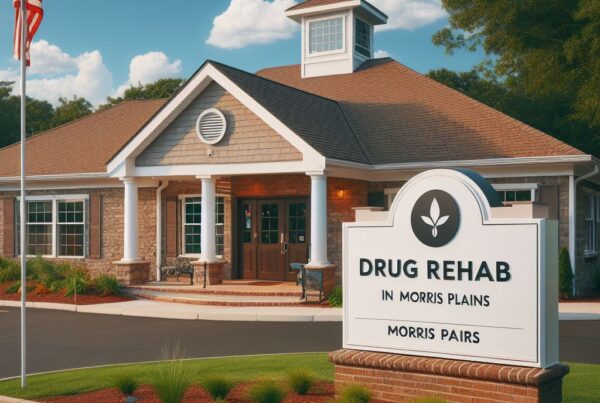Table of Contents
It can be difficult to tell if someone is suffering from addiction. This is because many of the signs and symptoms of addiction are also symptoms of other diseases or mental illnesses. For example, substance use disorder (SUD) and alcohol use disorder (AUD) are both types of addiction. They are both serious medical conditions that require treatment. This blog post will discuss the signs of addiction and how you can tell if someone is suffering from it.
Understanding Addiction
Addiction is a disease that affects the brain and body. It is characterized by compulsive drug seeking and use, despite harmful consequences. Addiction is a chronic disease that can last long or even be lifelong. It can cause serious problems with work, school, and personal relationships.
One of the biggest issues with addiction is understanding. Unfortunately, a stigma is often attached to addiction, making it difficult for people to seek help.
According to the National Institute on Drug Abuse, Stigmatization is discriminating against a particular group of individuals, a location, or a nation. People with SUD may face stigma in the form of incorrect or unfounded preconceptions, such as being hazardous, unable to handle treatment, or blamed for their disease.
Many people suffering from addiction fear judgment or rejection from family and friends. This is why educating yourself about addiction, understanding that it is a mental illness, and knowing its signs and symptoms are so important.
What is a Substance Use Disorder?
A substance use disorder (SUD) is a type of addiction involving drugs or alcohol. SUD can cause serious, long-term consequences, including problems with physical and mental health, relationships, employment, and education.
Signs and Symptoms
There are many addiction symptoms and signs. Some of the most common ones include:
- Compulsive drug seeking and use, despite harmful consequences
- Strong cravings for the drug
- Loss of control over how much and how often you use the drug
- Spending a lot of time using the drug or recovering from its effects
- Giving up important activities to use the drug
- Continued use of the drug despite problems it causes in your life
- Having withdrawal symptoms when you try to stop using the drug
What is an Alcohol Use Disorder?
An alcohol use disorder (AUD) is a type of addiction that involves the use of alcohol. According to the National Institute on Alcohol Abuse and Alcoholism (NIAAA), AUD is a chronic disease characterized by compulsive alcohol seeking and use, despite harmful consequences. AUD can cause serious problems with physical and mental health, relationships, employment, and education.
Signs and Symptoms
There are many signs of alcoholism. Some of the most common ones include:
- Compulsive alcohol seeking and use, despite harmful consequences
- Strong cravings for alcohol
- Loss of control
- Susceptibility to alcohol withdrawal symptoms
- Tolerance
- Continued use despite problems
- Giving up important activities to drink
Physical Changes in Active Addiction
People who are actively addicted often experience physical changes. These changes can be difficult to notice, as they may happen slowly over time. Some of the most common physical changes include:
- Weight loss or gain
- Changes in appetite
- Sleeping more or less than usual
- Lethargy or fatigue
- Agitation or irritability
- Slurred speech
- Poor coordination
- Memory problems
Emotional and Mental Changes in an Addict
People who are actively addicted often experience emotional and mental changes. These changes can be difficult to notice, as they may happen slowly over time. Some of the most common emotional and mental changes include:
- Anxiety
- Depression
- Mood swings
- Paranoia
- Delusions or hallucinations
- Aggressive or violent behavior
- Inability to concentrate
If you notice any of these changes in yourself or someone you know, it is important to seek help. These changes can indicate a larger problem; the sooner it is addressed, the better.
How Can You Help Someone Suffering from Addiction
If you think someone you know is suffering from addiction, the best thing you can do is to encourage them to seek help. This can be difficult, as many people suffering from addiction are in denial about their disease. However, it is important to remember that addiction is a disease, not a choice.
There are many resources available to help those suffering from addiction. Some of these resources include:
- Addiction treatment centers
- Medical detox program
- Addiction treatment programs
- Alcohol and drug rehabilitation facilities
If you or someone you know is suffering from addiction, please seek help. There are many resources available, and recovery is possible.
Absolute Awakenings offers a variety of addiction treatment plans, including medical detox, inpatient treatment, partial care, intensive outpatient program (IOP), outpatient, co-occurring disorders, trauma-informed care program, medication-assisted treatment, and recovery capital levels of care.
If you or someone you know suffers from an alcohol or drug addiction, please reach out to Absolute Awakenings. We can help you get on the path to recovery and sobriety. Visit our website today to learn more about our services and to connect with us.
References
- Cherney K. Living with an Addict: What to Know and How to Cope. Healthline. Published March 7, 2019. Accessed January 2, 2023. https://www.healthline.com/health/living-with-an-addict
- National Institute on Drug Abuse. Words Matter – Terms to Use and Avoid When Talking About Addiction. National Institute on Drug Abuse. Published November 29, 2021. Accessed January 2, 2023. https://nida.nih.gov/nidamed-medical-health-professionals/health-professions-education/words-matter-terms-to-use-avoid-when-talking-about-addiction
- Alcohol use disorder – Symptoms and causes. Mayo Clinic. Published May 18, 2022. Accessed January 2, 2023. https://www.mayoclinic.org/diseases-conditions/alcohol-use-disorder/symptoms-causes/syc-20369243
Absolute Awakenings Treatment Center Editoral Guideline
At Absolute Awakenings, we take information integrity seriously. We have dedicated our resources to ensure that all content published to our blog is medically sound. As such, all content on our blog has been thoroughly reviewed by a doctorate level clinician such as a Medical Doctor, or Psy.D, so that you can trust all of the data we publish.







